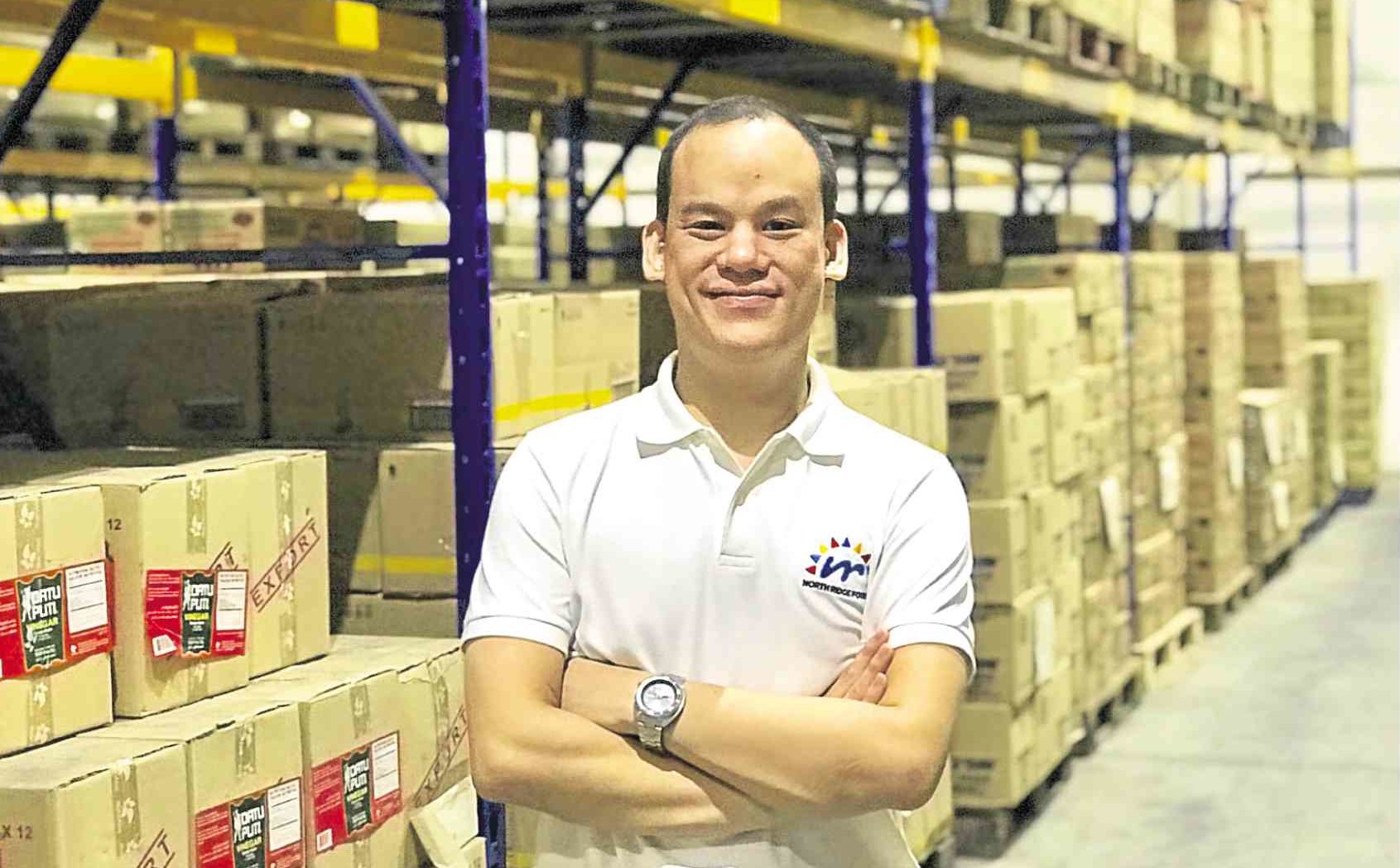Pinoy ‘sari-sari’ stores thrive in US
North Ridge Foods exports, distributes and promotes Filipino fast-moving consumer goods (FMCG) in North America.
Exclusively distributing for companies and brands including San Miguel Purefoods, Nagaraya, Barrio Fiesta, Unilever, Lemon Square, NutriAsia, Boy Bawang, Saranggani Bay, Wow Mani, Saba Seafood and Goldilocks, among others, the company creates an international presence for Filipino brands while giving Filipino and Asian communities abroad a taste of home.
With warehouses in California and New Jersey and a wide distribution network of around 900 unique accounts across the United States and Canada, North Ridge supplies many of North America’s top Filipino and ethnic Asian supermarkets. In the Philippines, it has been recognized by Center for International Trade Expositions and Missions as one of the country’s top consolidators and exporters of FMCG products.
North Ridge Foods marketing manager Drew Alianan, a second-generation entrepreneur, shares with us the marketing lessons that he has learned through the years.
Q: You joined North Ridge in 2014 when it was still an export consolidator. What prompted you to add marketing services and brand-building to its menu?
A: Joining the business as a second-generation entrepreneur, we tried to think outside the box. We analyzed our business model critically, seeing that the potential for growth and sustainability relied on postsale interactions.
Soon, we started to involve ourselves even after shipments reached their destinations. By shifting our focus to uncharted territory—brand-building and research analytics—we found our competitive advantage and ensured that each of the brands we carried thrived in the markets we serve.
These days, we are the only export consolidator that is also active in marketing the products we distribute. We have set up a trade marketing unit to regularly conduct sampling and demo activities in different trade channels, as well as to execute local promotions and campaigns that we plan together with our principals.
Above-the-line initiatives are also done via TV and print placements as required. Constantly innovating this approach so that our brands’ stories are properly communicated and experienced is our top priority.
Q: What are the challenges in offering Filipino products to the international market?
A: In the international market, especially in North America, the biggest challenge and blessing that we face are the second and third-generation Filipinos. Given that this new blood is the main driving force in Filipino and Asian supermarkets thriving abroad, most brands and categories start on an equal playing field.
Brands that are already leaders locally have to prove themselves anew, whereas smaller or newer competing brands have an equal chance of performing well. In fact, a number of these new brands actually outperform established brands and local giants.
Another challenge in offering Filipino products abroad is the need for more government support of small and medium enterprises and aspiring export brands.
We have no shortage of startups and fledgling companies with promising ideas or products. However, these companies need proper guidance since they lack the know-how, network and avenues to showcase their offerings to attract international buyers.
Think of what can happen if there was a more solid network for this need. How many more export success stories will we hear?
Q: Who are your consumers in North America, Filipinos or locals?
A: Filipinos and their families abroad are our primary market. As long as there is a Filipino community, we’ll be there. In North America, Filipino-Asian stores act as community centers—as a meeting hub for Pinoys, and even for others who share the love for Filipino goodies.
It’s quite rewarding to see, over the last decade, a growing number of ethnicities patronizing Filipino products and gracing the stores we serve. It fills me with so much joy and pride to see our culture being embraced by others.
Q: Can you share about your experience of failing fast and rising from failures?
A: My story of failing is more of a story of finding opportunities through failure and the value of what meaningful mentorships can do.
When I entered college in Ateneo, I was a happy kid excited with the prospect of having so much freedom to do what I wanted. I was naive then and enjoyed extracurriculars too much, which eventually resulted in grades slipping.
As a result, I had to transfer schools after sophomore year—a big disappointment not only to myself, but to my parents as well.
After analyzing what had happened and processing emotions, I took matters into my own hands. Determined, I decided that I will do what I can to make sure that my dreams were realized.
I transferred to Chiang Kai Shek College and studied diligently. There, I was blessed to meet professor Maribel Chan, who saw potential in me and entrusted me with opportunities.
I ended up graduating from that school having matured into a real student leader—president of two organizations and captain of the school’s marketing team, even winning a few competitions. I was also blessed to graduate as one of Markprof Foundation’s top trainees before joining Unahco.
Coming full circle, I got an MBA (master of business administration) from Ateneo and joined the family business.
In my current role, I try to practice all that I’ve learned since then and to apply these in our company while also learning from my parents. Imagine everything that followed from that failure—a real wake-up call.
Everything else started from there. I am really grateful for the lessons I’ve learned, and the meaningful mentorships and friendships I have been blessed with.
That is why I do what I can to pay them forward to those I work with every day. —CONTRIBUTED
Josiah Go is the chair and chief innovation strategist of Mansmith and Fielders Inc. Follow him at www.josiahgo.com.
